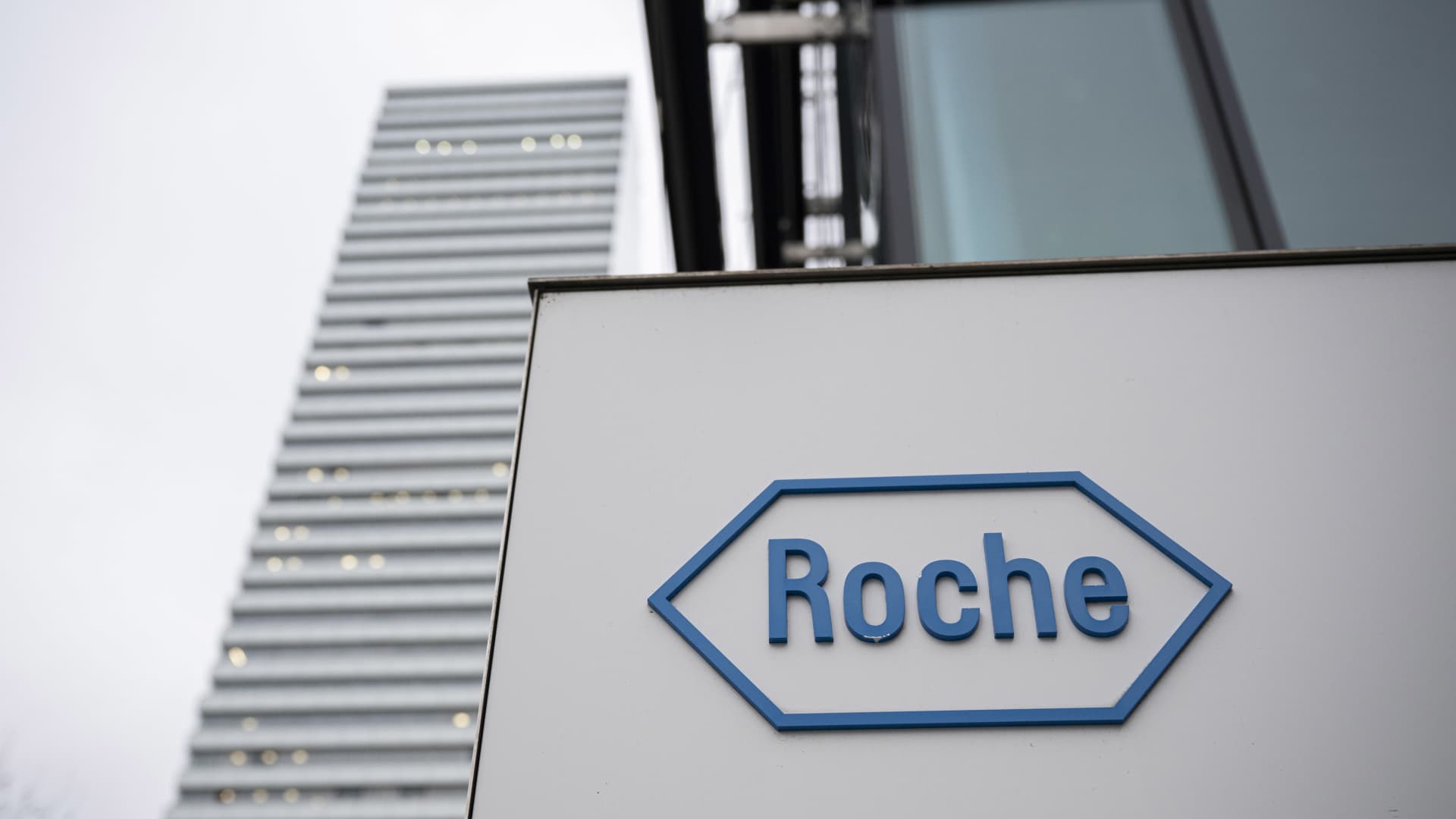
A logo at the Roche Holding AG headquarters in Basel, Switzerland, on Thursday, Feb. 1, 2024.
Bloomberg | Getty Images
Roche on Thursday said its experimental weight loss drug showed promising results in an early-stage trial, boosting the company’s bid to compete in the booming market for those treatments.
The Swiss company joined a slate of drugmakers racing to develop obesity drugs through its almost $3 billion acquisition of Carmot Therapeutics in December. But its weekly weight loss injection, called CT-388, is still years away from entering the market.
The weight loss drug space is dominated by treatments from Novo Nordisk and Eli Lilly, and some analysts say the market will be worth $100 billion by the end of the decade.
Roche’s CT-388 helped patients with obesity lose 18.8% of their weight relative to those who received a placebo, after 24 weeks in the phase one trial, the company said.
Roche added that all of the patients who received the drug lost more than 5% of their weight. Meanwhile, 70% of those people lost more than 15% of their weight, and 45% lost more than 20%.
The treatment works by mimicking the effect of two gut hormones — GLP-1 and GIP — to suppress a person’s appetite, just like Eli Lilly’s popular weight loss drug Zepbound and diabetes injection Mounjaro.
Scientists have hypothesized that targeting those two hormones could have a meaningful effect on weight loss and blood sugar levels with fewer side effects than drugs that only target GLP-1, such as Novo Nordisk’s weight loss treatment Wegovy.
Roche’s CT-388 is being developed to treat both obesity and diabetes.
Roche said it did not observe any new or unexpected side effects in patients taking CT-388. The company noted that mild to moderate gastrointestinal side effects were the most common, consistent with other weight loss and diabetes drugs that work the same way.
CT-388 also normalized blood sugar levels in a subgroup of patients with pre-diabetes.
Roche said it is testing CT-388 in an additional group of patients with obesity and diabetes over 12 weeks. The company expects data from those patients in the second half of the year.
Eli Lilly’s Zepbound delivered up to 22% weight loss after 72 weeks, while Novo Nordisk’s Wegovy has led to 15% weight loss after 68 weeks.

